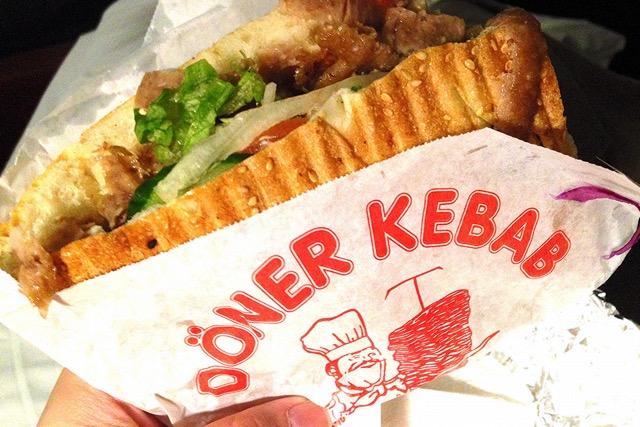How the “Döner War” Between Turkey and Germany Ended – and What It Means for Tourists

The long-running “Döner War” between Turkey and Germany has officially come to an end. Turkey has withdrawn its claim to the exclusive right to the name “Döner,” meaning that travelers across Europe can now enjoy their favorite dish without any legal uncertainty, reports G.Business.
What the dispute was really about
The conflict revolved around one of Europe’s most beloved street foods — the döner kebab. The Turkish producers’ association Udofed, based in Istanbul, had petitioned the European Union to recognize “Döner” as a geographically protected designation, arguing that only kebabs made according to the original Turkish recipe — without mayonnaise, cabbage, or mixed sauces, and using specific cuts of meat — should carry the authentic name.
If accepted, this would have meant that thousands of snack bars, restaurants, and food trucks across Europe, especially in Germany, could no longer use the word “Döner” to describe their local variations.
Germany strongly opposed the proposal, claiming that the döner had become part of its national identity and street-food culture. Today, the German döner is an icon — a perfect fusion of Middle Eastern heritage and European creativity. Visitors can find it everywhere: in flatbread, wraps, or boxes, in vegetarian or spicy versions, with falafel, sauces, and salads.
What the decision means for travelers
On September 23, 2025, Turkey officially withdrew its EU claim, allowing the term “Döner” to remain open for use by anyone in Europe. From a legal standpoint, every country, city, and food stand can now freely use the name for its own version of the dish.
For tourists, this means they can continue to enjoy döner kebabs in Berlin, Hamburg, Munich, or Düsseldorf exactly as they like them — customized to local tastes.
For Turkey, the decision is also positive: visitors to Istanbul or Izmir can experience the authentic Turkish version — served with grilled lamb or beef, tomatoes, onions, parsley, and lavash bread, without mayonnaise or other European additions. Each country keeps its identity while enriching the overall culinary experience for travelers.
Döner in Germany: a street-food guide for tourists
In Germany, the döner is more than just a snack — it’s a cultural phenomenon. With an estimated 18,000 kebab shopsnationwide, it has become a symbol of affordable and multicultural cuisine.
Popular varieties include:
- Classic Döner (Fladenbrot or Wrap): thinly sliced grilled meat (usually chicken or veal) with salad, onions, and yogurt or garlic sauce.
- Döner Box: meat served with fries, salad, and sauce — practical for eating on the go.
- Vegetarian Döner: made with falafel, halloumi, or grilled vegetables.
- Spicy Döner: with chili sauce for those who love bold flavors.
Average price: €4–6, making it one of the cheapest and most filling meals for travelers.
Döner in Turkey: the authentic original
In Turkey, the döner kebab is treated as part of the national heritage. The preparation follows strict traditional methods — high-quality meat, grilled vertically, and served simply.
Typical versions include:
- Ekmek Arası Döner: döner in flatbread or pita, without heavy sauces.
- Iskender Kebab: döner slices on bread, topped with tomato sauce and yogurt — rich and satisfying.
- Döner Plate: served in restaurants with rice, salad, and bread.
Prices range from ₺60 to ₺120 (approx. €2–4), depending on the region.
What tourists should know before ordering
Both in Germany and Turkey, döner is easy to find — from small kiosks to full restaurants. Most places now accept contactless payments and offer English-language menus. In major cities, menus may even be available in Ukrainian or Russian.
In Germany, famous spots such as Mustafa’s Gemüse Kebap in Berlin have achieved cult status. In Turkey, it’s best to explore family-owned eateries near local markets, where recipes are often passed down through generations.
A victory for taste and cultural diversity
By withdrawing its claim, Turkey has effectively ended a cultural dispute that went far beyond food. The “Döner War” became a symbol of a larger question: who owns a dish that has long become global?
For travelers, this outcome is a win. The döner remains what it has always been — a bridge between cultures. Whether enjoyed in Istanbul’s bustling alleys, on Berlin’s streets, or at Vienna’s modern take-away stalls, the döner connects people through flavor, history, and shared experience.
Stay connected for news that works — timely, factual, and free from opinion. Learn more about this topic and related developments here: Sarah Mullally becomes first woman to lead the Anglican Church